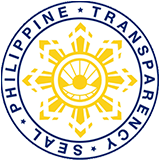Raising their four children and providing them with good education are top two of the concerns that this family always thinks about. With the meager income derived from sewing a few pieces of rags sold by the husband on the streets, the parents could hardly meet the expenses for food, education and transportation of their children.
The situation improved when the family of Jessie and Elena Odiame from Brgy. Manggahan, Pasig City was registered in the Pantawid Pamilyang Pilipino Program of the National Capital Region (NCR) in 2009.
Elena happily shared that Pantawid Pamilya program is such a blessing to her family because since then, the monthly cash grants they receive ensured the education and good health of their children. New opportunities were likewise opened to expand their business and to attain the subsistence level of well-being.
Rag-making now a family business
Elena, who is a skilled sewer started to engage in sewing rags in 2005 with P8,000 seed capital. This amount covered the purchase of a manual sewing machine and pieces of cloth (retaso) that she used to start her rag making business. Her husband, Jessie, helps her in marketing the rugs on the streets. When their children do not have classes, they also help in assembling and packaging the rags.
The rag-making routine of the family turned into a small family business at home. In January 2011, Elena availed of P10,000 capital assistance through the DSWD’s Self-Employment Assistance-Kaunlaran (SEA-K) program and she used it to expand their business.
After some months, they were able to improve their rag business through increased volume and improvement in the packaging process. Likewise, they were able to pay the loan capital in just eight months.
On-going business expansion
The family continued to expand the rag-making business by applying for additional loan of Php 10,000 through SEA-K which was granted last April 2013. With the improved packaging, the family is now supplier of rags to two manufacturing companies in Pasig City.
Every month, they would buy 500 kilos of retaso at Php7.00 per kilo. One kilo of retaso can produce up to 30 pieces of rags and sold at P1.00 per piece.
“Every two weeks kami nag-dedeliver sa mga manufacturing companies na suki namin. Mga 3,750 pirasong basahan na magbibigay sa amin ng kita na humigit-kumulang P15,000 kada buwan (We supply 3,750 pieces of to the two manufacturing companies every two weeks which gives us approximately P15,000.00 monthly income),” shared Elena.
Elena added that if they have more orders, they would employ the services of Pantawid Pamilya beneficiaries within the community in sewing and packaging the rags to meet the demands of their customers.
“Parang tulong na din namin ito sa mga kapareho naming miyembro ng Pantawid Pamilya (This way, we are also of help to our fellow beneficiaries),” Elena beamed.
Sustainable Livelihood Program
Aside from the capital assistance through SEA-K, Jessie, Elena’s husband has become recipient of ‘Trabahong Lansangan’ program, a DSWD and DPWH partnership initiative on employment generation to beneficiaries of Pantawid Pamilyang Pilipino Program.
For six months, Jessie worked as road maintenance worker at DPWH and received a daily wage of P404.00. After his contract with DPWH, he was recommended for employment at the Metropolitan Manila Development Authority (MMDA).
Currently, he works as labourer/painter at MMDA and receives a monthly income of P8,080.
Transition plan
Jessie and Elena are aware that they will be exiting from the Pantawid Pamilyang Pilipino Program by December 31. Both are thankful for the available opportunities to improve their lives.
The program helped them to continue sending their children to school. In fact, their eldest daughter finished a course in Hotel and Restaurant Services and now works as a real estate agent.
It also taught them how to manage their family business. The family development sessions and basic business management training afforded them were instruments to what they are enjoying now…a more improved way of living.
“If not with Pantawid Pamilya, we will not be able to send our children to school. The program was truly a blessing,” concluded Elena. ###



